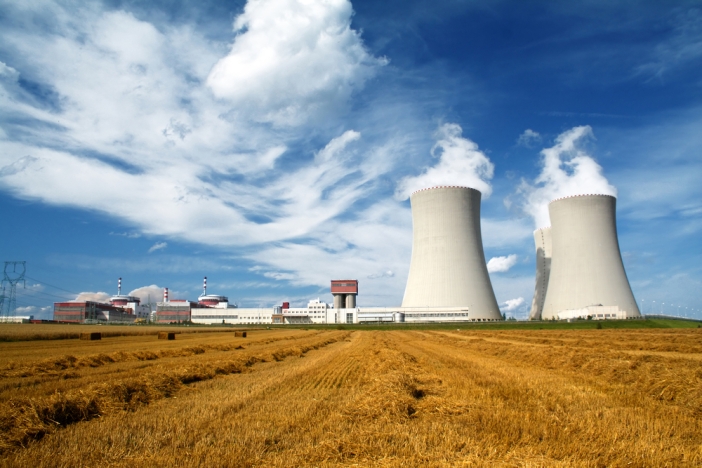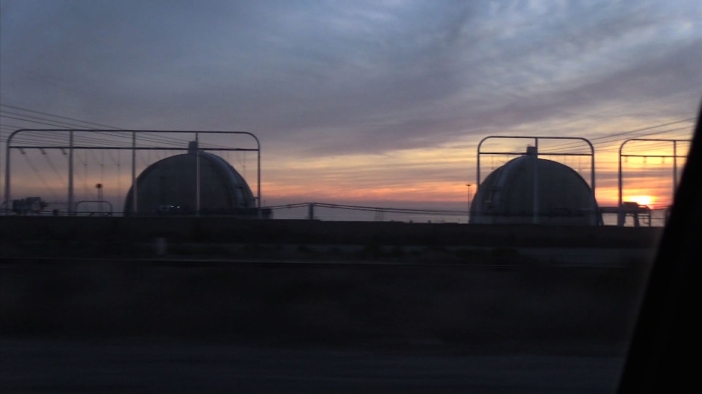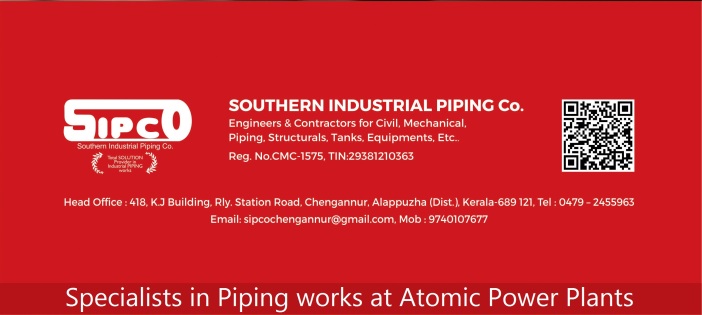Safe and Hygienic Industrial Piping:
Food is an important aspect for any living thing. Food is a great enjoyment too. Food is harvested and is immediately consumed. The balance after human consumption goes mostly wasted. This waste can be minimised and can be brought down to its least. Food is to be processed and preserved.

We have a lot of food factories to process, modify, preserve and facilitate transport of various food items. So that food is made available to more number of people for a longer time and to a larger geographical area. Processing causes nutrient loss. Yet by minimising this loss food has to be processed and preserved for future use. To transport food available at one place to another where it’s not there, we have to process and pack it properly.
There’s an absolute necessity in food industry too for expert piping works. The scope of industrial piping in food industry includes laying safe and hygienic pipe systems for bulk food stuff handling, dust removal, temperature control and proper ventilation of the premises.
The core focus of industrial piping in food industries will be on the installation of steel pipes in closed hygienic systems (CIP/SIP Cleanable). The cabling and electrical cabinets are done with great focus on hygiene.
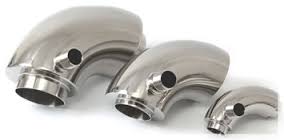
Stainless steel is more or less inactive to most environments. Hence in equipment and in piping, stainless steel of varying qualities are used in food industry. The chromium oxide layer which gets formed on the surface of the vessels or pipes is more or less uniform, hard and prevents corrosive action. It’ll appear smooth and whole, all over the surface and have excellent mechanical properties. In case this chromium oxide layer disintegrates the steel vessel will corrode.
Choosing the steel quality is dependent on the load to which the surfaces is subjected and the environment to which it’s being exposed. Steel with maximum carbon content, around 0.05%, is found to be ideal in most conditions.
The piping must be round and fittings must have round branch pipes. There must not be any oval cross sections at the ends of neither pipes nor fittings.
The inside surface must be from scratches, pores, pits, corroded surfaces or other such surface defects. Both the inside and outside of the steel vessels and pipes must be clean.
Food companies are facing a lot of problems in their products, which will lead to a lot of public concern and litigation due to the reasons of inferior hygienic conditions. So to produce high quality products at the lowest expenses the piping though which they convey the food stuffs for processing and the containers they store these finished or intermediary products must be clean and safe. Piping should be clean and clear.
The welding process must be done as specified for the purpose. Only an experienced well informed welder can do it. Above everything the steel pipes and fixtures must facilitate free flow of the materials without clogging. Must be easy to clean and replace.
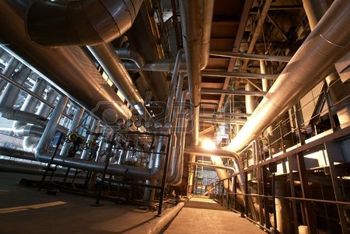
There are a lot other specifications. Only expert can ensure the right conditions.
The need for SIPCO in Food and Allied industry
Southern Industrial Piping Company, SIPCO has done it many times and at many places. The particular conditions prevailing in food industry is quite familiar to SIPCO engineers. In fact they are well versed in piping works of all sorts.
So in industrial piping, where you can never afford to take risks, where trial and error method will never work, call SIPCO. SIPCO is an experienced expert in Industrial Piping of all sorts in food product manufacturing factories.
Whether it’s for the licence renewal of an existing plant or for erecting up a new plant in industrial piping works in food industries, consult first with SIPCO.
For more details please call 9740107677 or mail us at sipcochengannur@gmail.com, sipco.jsw@gmail.com Our facebook page
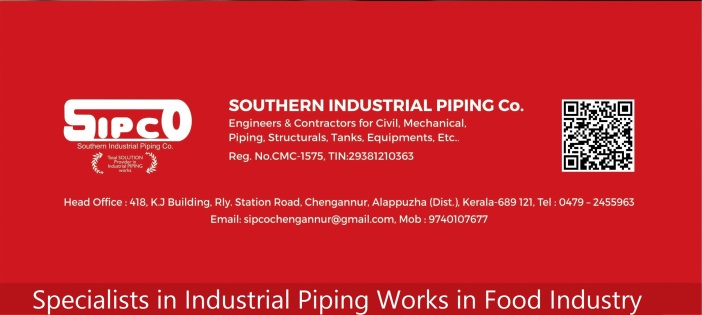
Our other pages Industrial Piping in Oil Refineries Industrial Piping in Steel Plant Industrial piping in Food Industry Industrial Piping in Thermal Power stations Industrial Piping in Atomic Reactors Contact us Out e-brochure works we have done Fastening relations we are experts in Industrial Piping in Fertiliser Plants
This blog post of mine has been influenced by another blog by getadvanceinfo on timber flooring. You may please visit that blog too.

